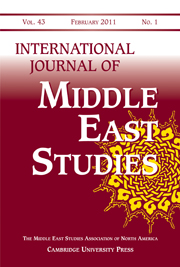Abstract
This article examines the rise and fall of the Malhamé family at the court of Abdülhamit II. The point of departure is the flight and arrest of six Malhamé brothers and the accompanying outbursts of popular anger at them during the Young Turk Revolution of 1908. The analysis locates the historical conditions that made the Malhamé phenomenon possible in the interstices between Levantine society, late Ottoman bureaucracy, and European diplomacy and capitalist expansion. In order to bring into conversation the hitherto unconnected literatures on the Levant and the Ottoman state, the Malhamé story is framed in the analytical concept of transimperialism. This concept shares affinities with wider transnational studies. But it is also grounded in the specific political, economic, and social processes of the Levant—both within the Ottoman Empire and among it and its British, French, German, and Italian imperial rivals at the height of the “Eastern Question.”
Publication Type
- Article



